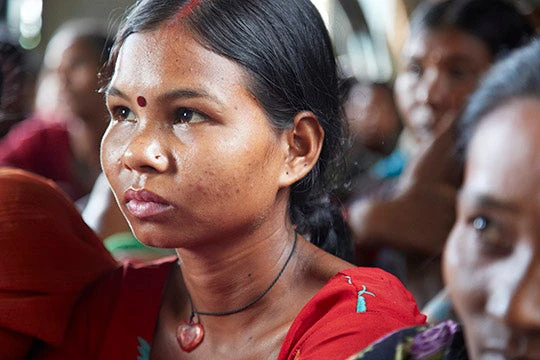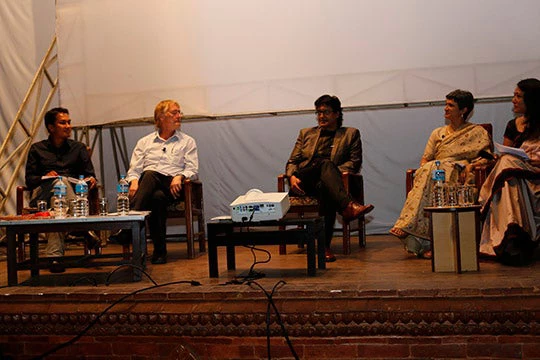It was a Friday evening and the auditorium inside St. Xavier’s College in Kathmandu was packed with almost 300 people. Students, activists, experts from the government and civil society gathered inside the hall along with an eclectic panel comprising of a film celebrity, a lawyer activist, an IT entrepreneur and an INGO Head. They were all there to discuss one crucial issue - violence against women and girls.
The statistics are shocking. Nepal ranks 14th among the countries with the highest global prevalence of physical violence by intimate partner, according to a new World Bank report. A staggering 45 percent of Nepali women have reported suffering two or more types of sexual coercion in their lifetime and 20% of the abortions in Nepal each year are carried out by women who prefer a son to a daughter.
Truth be told, there is a lot of good work happening already. Initiatives like the Meena media campaign which focused on promoting positive role models for girls to One-stop Crisis Management Centers which aid survivors of violence.
Yet, the problem persists. Everyday newspapers splash stories of women and girls being raped, trafficked, beaten, and murdered. These headlines shock us, capture our attention, and maybe even motivate us to have a few heated debates about how perpetrators should be punished. Then we go back to our daily lives. But do we ever question how we ourselves are a part of a society which actively conserves norms and beliefs that breed such violence?
In a country where 23 percent of women believe that a husband is justified in beating his wife for burning his food, a rape scene in a film may be scandalous but a husband chastising his erring wife with a slap is cheered. We shake our heads in disapproval at the chhaupadi system and yet we still whisper when we utter words like ‘sex’, ‘menstruation’ and ‘rape’. When our own mothers and fathers taught us that girls who wear ‘inappropriate clothes’ get into trouble, why are we surprised when the policeman blames the victim of violence for her choice of attire?
We may wait for the government to change laws; we may applaud activists who fight to create this change, but will we speak up and take action when we see someone we know getting hurt? Ultimately, the change has to come from within us. It’s time we took a step in the right direction.




Join the Conversation